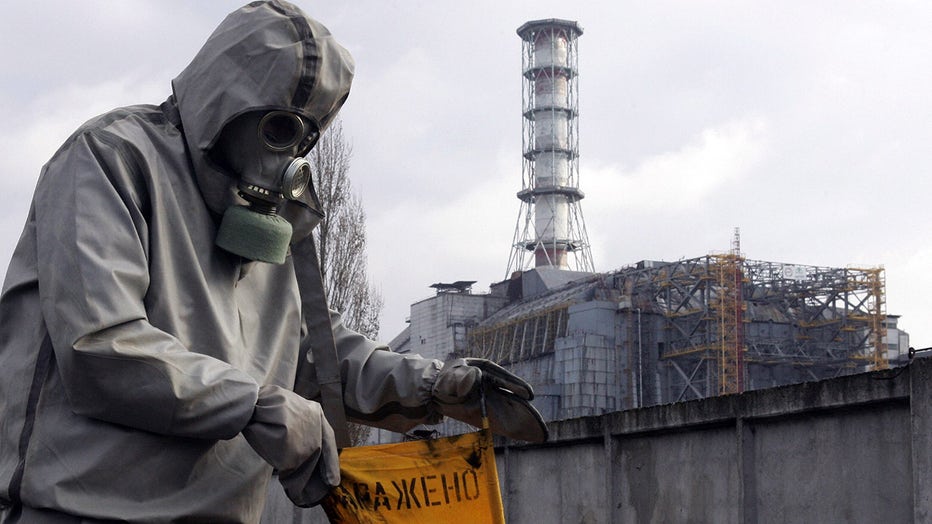Chernobyl’s mutant wolves developing resistance to cancer, study says
Genetics, behavior of Chernobyl dogs observed in first-ever study
The dogs of Chernobyl have been living in and around the power plant for decades and researchers are now getting a first-ever close look in their behaviors and genetics to explain how they continue to live in such a hostile environment.
Wolves in Chernobyl’s radiation zone appear to have developed a resistance to cancer after being exposed to high levels of radiation in the wake of the nuclear disaster 35 years ago, according to a new study.
Cara Love, an evolutionary biologist and ecotoxicologist at Princeton University, found that the wolves in the Chernobyl Exclusion Zone (CEZ) have altered immune systems "similar to cancer patients undergoing radiation treatment," according to the Society for Integrative and Comparative Biology.
In 2014, Love and her colleagues put collars equipped with radiation dosimeters on wolves in the area and took blood samples to understand the animals' responses to being exposed to upwards of 11.28 millirem of radiation per day – six times the legal safety limit of radiation for humans.
The research could help to identify protective mutations that can increase the odds of surviving cancer.
NEW REPORT SHOWS RUSSIA RAKING IN REVENUE FROM STATE NUCLEAR COMPANY

File: A rescue worker sets a flag signaling radioactivity in front of Chernobyl nuclear power plant during a drill organized by Ukraine's Emergency Ministry 08 November 2006. (SERGEI SUPINSKY/AFP via Getty Images)
Chernobyl is known for its brutal environment following the 1986 explosion and fire at the Ukraine power plant that sent radioactive fallout spewing into the atmosphere. Thirty workers were killed in the immediate aftermath while the long-term death toll from radiation poisoning is estimated to number in the thousands.
FIRST NUCLEAR FUSION POWER PLANTS WILL NEED $7 BILLION SUPPLY CHAIN, SURVEY FINDS
Nearly four decades after the accident, a range of wildlife populates the region, including bears, wolves, dogs and lynxes.
Scientists have said the research could have wide applications, providing insights about how animals and humans can live now and in the future in regions of the world under "continuous environmental assault" – and in the high-radiation environment of space.
LINK: GET MORE ON THIS STORY FROM FOXNEWS.COM

